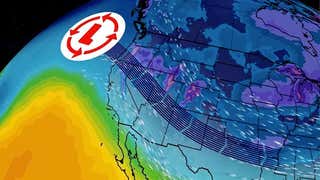


Cities are almost always hotter than the surrounding rural area but global warming takes that heat and makes it worse. In the future, this combination of urbanization and climate change could raise urban temperatures to levels that threaten human health, strain energy resources, and compromise economic productivity.
Summers in the U.S. have been warming since 1970. But on average across the country cities are even hotter, and have been getting hotter faster than adjacent rural areas.
Urban heat measured by satellite in Louisville, Ky.
With more than 80 percent of Americans living in cities, these urban heat islands — combined with rising temperatures caused by increasing heat-trapping greenhouse gas emissions — can have serious health effects for hundreds of millions of people during the hottest months of the year. Heat is the No.1 weather-related killer in the U.S., and the hottest days, particularly days over 90°F, are associated with dangerous ozone pollution levels that can trigger asthma attacks, heart attacks, and other serious health impacts.
Our analysis of summer temperatures in 60 of the largest U.S. cities found that:
– 57 cities had measurable urban heat island effects over the past 10 years. Single-day urban temperatures in some metro areas were as much as 27°F higher than the surrounding rural areas, and on average across all 60 cities, the maximum single-day temperature difference was 17.5°F.
– Cities have many more searing hot days each year. Since 2004, 12 cities averaged at least 20 more days a year above 90°F than nearby rural areas. The 60 cities analyzed averaged at least 8 more days over 90°F each summer compared to adjacent rural areas.
– More heat can increase ozone air pollution. All 51 cities with adequate data showed a statistically significant correlation between higher daily summer temperatures and bad air quality (as measured by ground-level ozone concentrations). Temperatures are being forced higher by increasing urbanization and manmade global warming, which could undermine the hard-won improvements in air quality and public health made over the past few decades.
– In two thirds of the cities analyzed (41 of 60), urbanization and climate change appear to be combining to increase summer heat faster than climate change alone is raising regional temperatures. In three quarters (45 of 60) of cities examined, urbanized areas are warming faster than adjacent rural locations.
– The top 10 cities with the most intense summer urban heat islands (average daily urban-rural temperature differences) over the past 10 years are:
Las Vegas (7.3°F)Albuquerque (5.9°F)Denver (4.9°F)Portland (4.8°F)Louisville (4.8°F)Washington, D.C. (4.7°F)Kansas City (4.6°F)Columbus (4.4°F)Minneapolis (4.3°F)Seattle (4.1°F)
– On average across all 60 cities, urban summer temperatures were 2.4°F hotter than rural temperatures.
Urban heat islands are even more intense at night. Over the past 10 years, average summer overnight temperatures were more than 4°F hotter in cities than surrounding rural areas.
Several independent studies have shown that urban heat islands (in the U.S., and around the world) do not bias global warming measurements, ruling out the possibility that rising global temperatures have been caused by urbanization alone.
Research suggests that urban planning and design that incorporates more trees and parks, white roofs, and alternative materials for urban infrastructure can help reduce the effects of urban heat islands.
But rising greenhouse gas emissions are projected to drive average U.S summer temperatures even higher in the coming decades, exacerbating urban heat islands and their associated health risks.
Research report written by Alyson Kenward, Senior Scientist and Research Director for Climate Central; Dan Yawitz, Research Analyst and Multimedia Fellow; Todd Sanford, Climate Scientist; and Regina Wang, Research Fellow.
MORE ON WEATHER.COM: America's Most Polluted Cities




